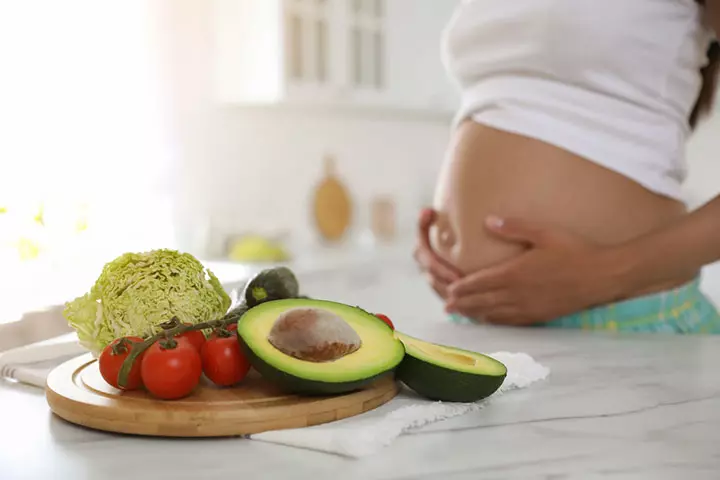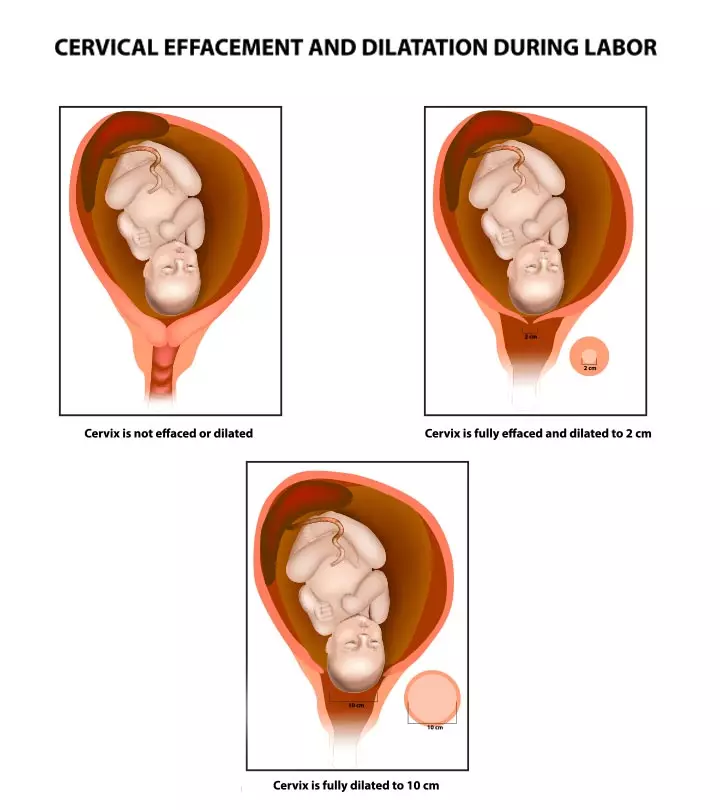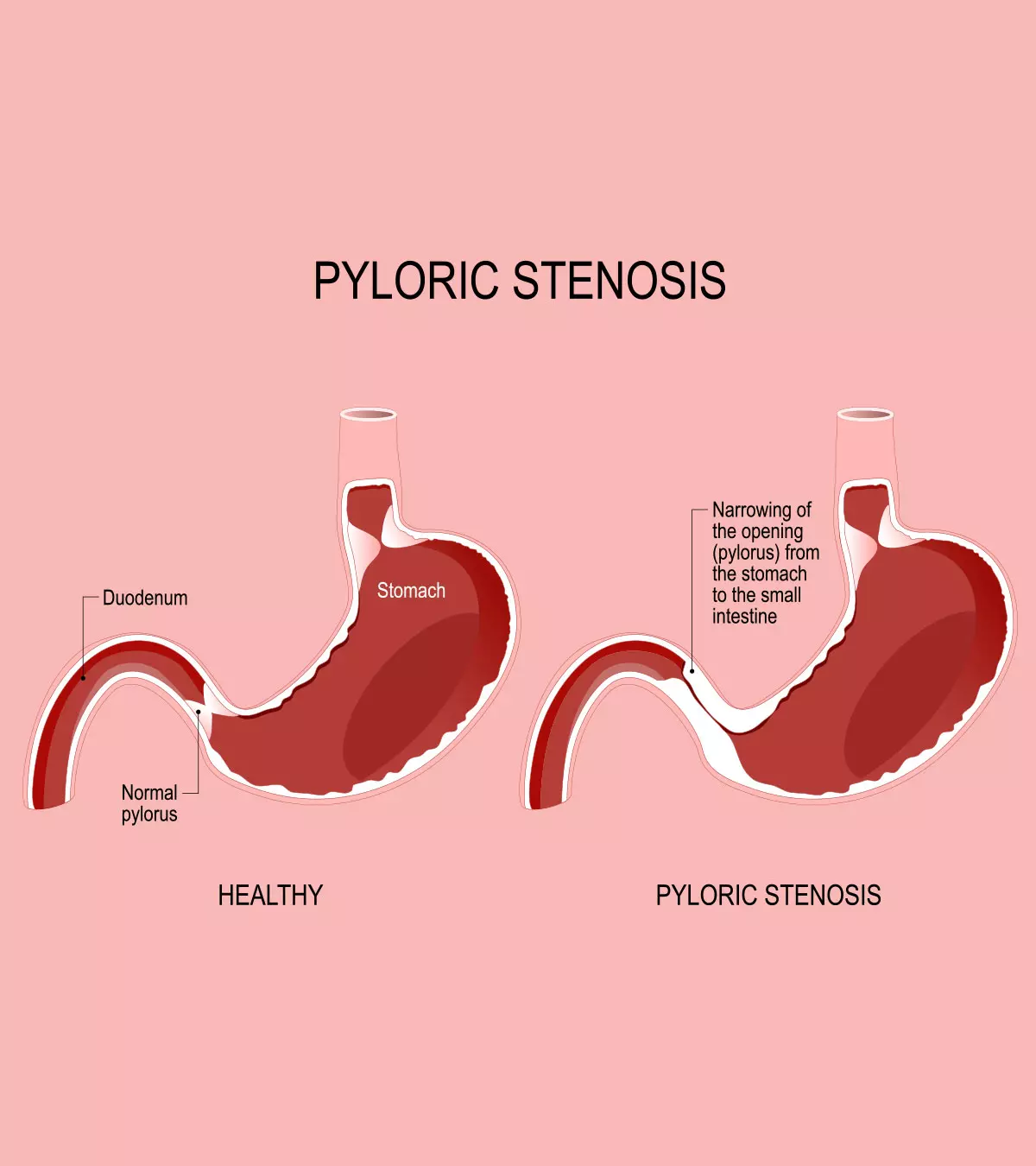
Image: ShutterStock
Garcinia Cambogia, a tropical fruit, has gained popularity in the past few years as a weight loss supplement. Women who have gained more than expected weight during pregnancy might want to know if they can safely consume Garcinia Cambogia for weight loss. It is important to lose weight gradually and be in the desirable BMI range to avoid pregnancy-associated complications. But still, you may wonder if it is safe to use such supplements for weight loss when pregnant. Read this post to learn more about the safety, side effects, and tips on avoiding unhealthy and excessive weight gain during pregnancy.
Key Pointers
- Garcinia Cambogia is a medication that promotes weight loss.
- Taking Garcinia Cambogia supplements during pregnancy is not recommended due to a lack of thorough studies on its safety during this time.
- The significant decrease in appetite caused by this medication may affect the child’s nourishment, making it potentially harmful during pregnancy.
- To avoid excess weight gain during pregnancy, maintain a healthy balanced diet, exercise frequently, eat small meals frequently, and stay well hydrated.
What Is Garcinia Cambogia?
Garcinia is a plant whose fruit rind is commonly used to make medicines, such as herbal medicine. Garcinia or Garcinia Cambogia is a medication or a natural remedy that helps promote weight loss. While there isn’t much research available on the same, garcinia cambogia can prevent the storage of fat in the body, resulting in weight loss. Some also feel that it can control your appetite, cutting down the urge to eat and thus preventing additional weight gain (1).
Is It Safe To Take Garcinia Cambogia While Pregnant?

Image: IStock
There is not enough medical data to support whether or not garcinia cambogia is safe during pregnancy. To be on the safer side, you should avoid using the same while you are pregnant or breastfeeding. If you still want to proceed, it’s essential to consult with your doctor first, either by phone or during your prenatal care appointments, to obtain their approval before taking any action.
Weight loss via medications or any other way is not recommended, improving upon your dietary intake is the best option to control rapid weight gain during pregnancy, keep a good control over fats and sugars and that will be a start to some weight control.
 Point to consider
Point to considerWhat Does Garcinia Cambogia Do?

Image: IStock
Garcinia Cambogia is a supplement from a naturally growing plant found mostly in Africa, Asia, Australia and Polynesia. The supplement is popular due to the following reasons:
- It blocks the fat from getting stored in your body, preventing excess weight gain.
- Taking the supplement will help you cut down your appetite, meaning you feel less hungry and eat less. The same will also benefit in controlling your weight and preventing excess weight gain.
- The Garcinia Cambogia supplement will give you additional energy that will keep you feeling fresh and healthy even as you lose weight.
 Quick fact
Quick factSide Effects Of Consuming Weight Loss Products During Pregnancy
- When you are pregnant, your body is the sole source of nutrition and nourishment for your baby. Whatever you eat and drink or do not, will directly affect your baby.
- Eating a healthy and well-balanced diet is extremely crucial during your months of pregnancy, as it will help your baby grow and develop properly.
- The fat in your body is also important when you are pregnant, as it will help your unborn baby’s development. Your body has both good fat and bad fat. The different types of fats you consume will help in the proper development of your baby’s eyes and brain. Not having enough fat in your body or not consuming enough fat will put your unborn baby’s development and growth at risk.

Image: IStock
- In your first trimester and sometimes even a few weeks into your second trimester, you may still experience nausea during pregnancy. While you are nauseous, it already reduces your appetite, which means that you are not able to eat properly. If you try to reduce your weight at this stage or curb your appetite, it may lead to a deficiency of nutrients in your body. The same can hinder your unborn baby’s proper growth and development.
 Quick fact
Quick factHow To Avoid Gaining Excess Weight While You Are Pregnant
While pregnancy is a great time of joy and excitement, you may also be concerned about the extra weight that you gain. It is extremely important to exercise caution and maintain a healthy pregnancy weight to ensure good fetal and maternal health and avoid any health complications. If you are looking for ways to lose weight while pregnant or want to make sure that your weight does not go over the recommended number, go for natural and safe ways to lose that weight. Here are a few tips that can help you:
1. Divide Your Meals Into Smaller Portions And More Frequent:

Image: IStock
While you are pregnant, or if you want to lose weight, it is always a good idea to break up your meals into smaller ones and increase the frequency.
- Break up your meals into smaller portions. It will help the food get digested easily and will not make you feel too full or bloated.
- Once you increase the number of times you eat, it will prevent hunger pangs. You will not feel hungry in the long stretches in the middle of meals. Smaller and more frequent meals will also ensure that you do not snack up on junk.
2. Eat A Balanced Meal:
Eating a balanced meal will provide you with overall nutrition without adding unnecessary weight.
- Include lots of proteins, calcium, vitamins, some fats, fresh fruits and vegetables in your daily diet.
- Make sure you eat as much as home-cooked meals as possible and avoid the packaged and ready-to-eat variety. Packaged foods come loaded with extra sodium and other preservatives that are not good for your health and will only add up those extra calories.
3. Have Lots Of Water:
Water is one miracle drink that you should have as much as you can while you are pregnant, and even otherwise.
- It is important to hydrate yourself while you are pregnant. Drinking enough water will also keep you feeling full in between your meals and snacks, and prevent your urge to snack unhealthily.
- Drinking enough water will keep your digestive system healthy and prevent constipation which is a very common condition when you are pregnant. It will prevent bloating and additional weight gain too.
4. Add-In Exercise:

Image: Shutterstock
The key to staying fit and healthy while pregnant is to include some form of exercise and follow a healthy lifestyle.
- Take your doctor’s advice about what kinds of exercise you can perform.
- Be active and try to include some open air exercises in your daily routine, something even as simple yet effective as a daily walk.
There is not enough information on the safety of Garcinia cambogia during pregnancy. This plant-based medication promotes weight loss. However, the mechanism of action or fat loss is not known. They may help in weight loss by reducing appetite or blocking the storage of fat in the body. Garcinia in pregnancy can affect nutrition absorption, and it may affect the growth of the baby. You may try to eat nutritious and well-balanced meals and do recommended physical activities to maintain healthy body weight during pregnancy.
Frequently Asked Questions
1. How long should I wait after giving birth before resuming the use of garcinia cambogia supplements?
As advised by the CDC, it is recommended to breastfeed your child for the first six months after birth. During breastfeeding, it is advised not to use Garcinia cambogia supplements. Garcinia can usually be tolerated by adults and may sometimes cause mild gastrointestinal discomfort, but its effects have not yet been studied in the case of pregnant and breastfeeding women (3).
2. What should I do if I experience any adverse effects while taking garcinia cambogia during pregnancy?
It is not advised to consume Garcinia cambogia or any weight loss supplement during pregnancy. You must consult your doctor before taking any such supplements. If you have been using Garcinia cambogia supplements and feel discomfort, seek medical attention as soon as possible.
Infographic: Using Garcinia Cambogia During Pregnancy
Although you could be concerned about your weight gain during pregnancy, you must refrain from taking any weight loss supplements or herbs as they could harm your fetus. Therefore, if you have come across supplements that promote weight loss (such as Garcinia cambogia) and considering taking them while pregnant, we suggest you go through these points to make a wise decision.

Illustration: Momjunction Design Team
Garcinia Cambogia has been touted as a miracle weight loss supplement. The following video details how it really works.
Illustration: Is It Safe To Use Garcinia Cambogia While Pregnant?

Image: Stable Diffusion/MomJunction Design Team
References
- Li Oon Chuah et al.; (2012); In vitro and in vivo toxicity of Garcinia or Hydroxycitric acid: A review.
https://www.ncbi.nlm.nih.gov/pmc/articles/PMC3424601/ - Garcinia Cambogia.
https://www.nccih.nih.gov/health/garcinia-cambogia - Garcinia: Drug levels and effects.
https://www.ncbi.nlm.nih.gov/books/NBK501896/#:~:text=Garcinia%20and%20hydroxycitric%20acid%20are,a%20newborn%20or%20preterm%20infant
Community Experiences
Join the conversation and become a part of our nurturing community! Share your stories, experiences, and insights to connect with fellow parents.
Read full bio of Jyoti Benjamin
Read full bio of Ria Saha
Read full bio of Swati Patwal
Read full bio of Lorraine Teron


















